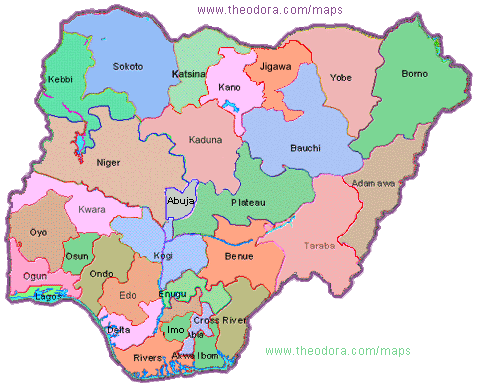Nigeria ranks 37 in its commitment to ending hunger and malnutrition among its people, the Hunger and Nutrition Commitment Index–Africa has indicated.
The rankings, produced by the Institute of Development Studies with the African Union’s New Partnership for Africa’s Development, was released on the website of the Institute of Development Studies on Thursday.
The News Agency of Nigeria reports that while South Africa ranks highest, Malawi follows closely in second place while Sudan, Guinea-Bissau and Comoros are at the bottom of the HANCI-Africa rankings.
With 220 million Africans still estimated to be suffering from chronic hunger and 58 million children under five years stunted by under-nutrition, the report reveals nations taking the strongest action.
The HANCI-Africa report compares the performance of 45 countries on 22 indicators of political commitment to reducing hunger and under-nutrition.
The report highlights concerns that the commitment to address hunger and under-nutrition needs shoring up in Nigeria, Africa’s most populated country and largest economy.
The report shows that the National Nutrition Policy, which identifies time-bound nutrition targets and multi-sector policies, is a strong indicator of Nigeria’s commitment to ending the menace.
It also praises the feeding programme of the present government, highlighting that the constitutional protection of the right to social security is strong in the country.
The report, however, called for improved spending in the agriculture and health sectors.
The report said: “Spending on agriculture does not meet government commitments set out in the African Union’s Maputo Declaration which should be 10 per cent of public spending.
“Nigeria’s spending in its health sector does not fully meet the 15 per cent commitment set out in the Abuja Declaration.
“In Nigeria, the law does not give women economic rights equal to men.
“Men and women have equal legal access to agricultural land, but this is not effectively enforced and discriminatory practices against women continue, increasing their vulnerability to hunger and under nutrition.”
The report also shows that relative to other HANCI countries, Nigeria’s medium to long term national development policy, which is the Vision 20: 2020, places weak importance on nutrition.
It urged the Federal Government to create a separate budget line for nutrition, adding that the present model prevents transparency and accountability for spending.
It stated: “Also, weak access to improved sources of drinking water, which was 68.5 per cent in 2015 and an improved sanitation facility of 29 per cent in 2015, prevents positive outcomes for hunger and nutrition in Nigeria.
“In Nigeria only 60.6 per cent of women aged 15 to 49 were visited, at least once during pregnancy, by skilled health personnel in 2013.
“Constitutional protection of the right to food is weak and social safety nets are basic and only cover few risks for a limited number of beneficiaries.”
The report also urged the Nigerian government to improve its legal framework to protect citizens’ right to food.
It said: “Government is tasked to ensure that nutrition is not excluded in its national development strategies and to improve spending on agriculture which will help to eliminate hunger in the country.”
Trending
- Peter Obi visits burnt market, plaza in Onitsha + Photos
- Burning of Rivers Assembly: Fubara’s Chief of Staff to sue former HoS
- Nigerian boxer who died in Ghana fought against advice to repay debt — NBBofC, Coach
- 2Face: Natasha Osawaru adds ‘Idibia’ to name on Instagram
- Trump: I’m ‘not joking’ about possible third term as US president
- Lassa fever kills 118 in Quarter 1 of 2025 — NCDC
- Uromi killings: Kano Government deploys delegation to Edo
- NDIC to Nigerians: All banks are safe and sound


